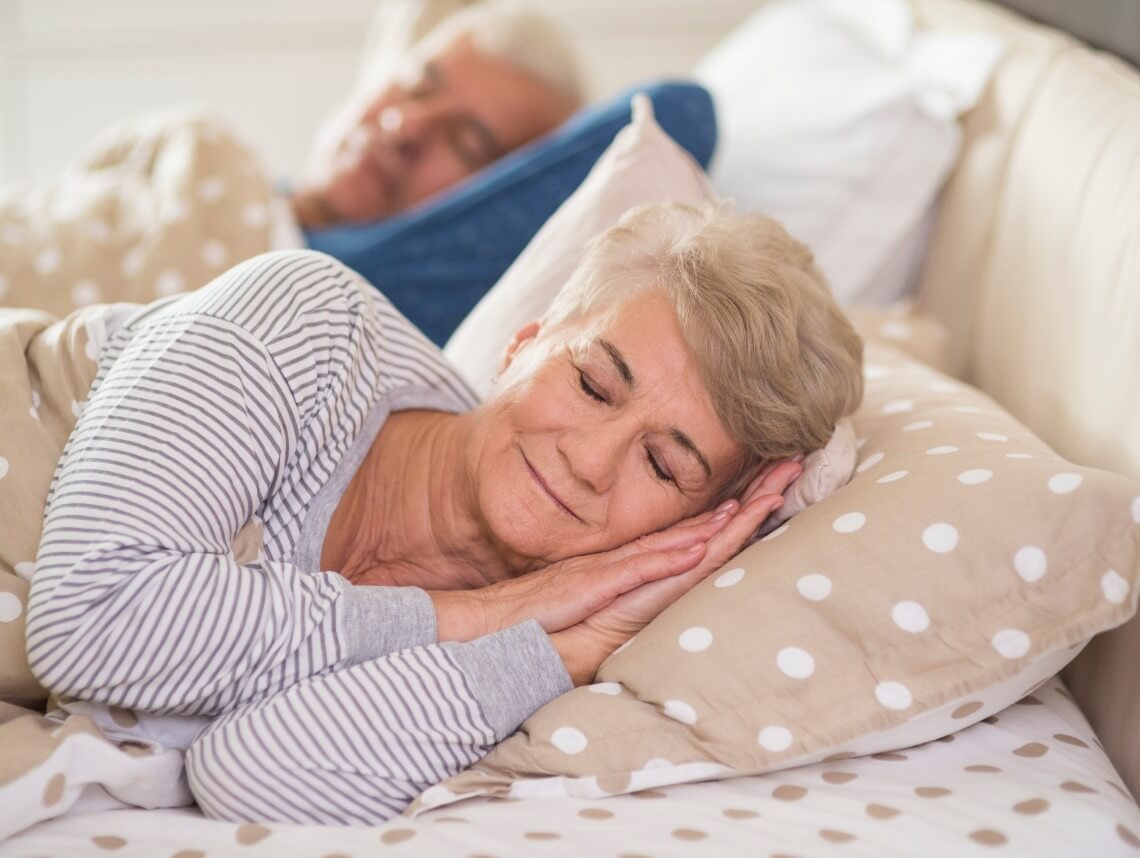Being on a home care journey with an elderly loved one who has been diagnosed with Alzheimer’s disease or another form of dementia is challenging, but if that senior also deals with Sundowners, the situation can be even more stressful and difficult.
What is Sundowners Syndrome?
Sundowners syndrome, or sundowning, is a condition characterized by agitation, confusion, and even fear in seniors with dementia as the sun goes down.
While this condition is upsetting in of itself, it can lead to sleep loss for both the senior and their family caregiver and can contribute to emotional and mental health consequences throughout the day, and eventually physical health consequences.
If your senior copes with sundowning, finding ways to ease the stress and improve sleep can protect them from negative health consequences and keep you stronger and healthier so you stay at your caregiving best.
6 Sleep Tips for Seniors with Sundowner’s Syndrome
Some ways that you and your parents’ in-home health care services provider can improve sleep patterns for seniors with Sundowners include:
1. Light Up
Darkness and shadowy areas are unnerving and confusing for a sundowning senior. Rather than waiting for the home to get dark as the evening approaches, go ahead and turn on the overhead lights and lamps in the middle of the afternoon and close the blinds up half an hour before the sun sets. This makes the decline in natural light less noticeable so your parent is less likely to get agitated because of it.
2. Do Not Stimulate
Stimulating the nervous system only increases the chances of anxiety and agitation in the evening. Avoid giving your parents any form of stimulant, including sugar, nicotine, or caffeine during the afternoon or evening. Switch to water and soothing beverages such as herbal tea with chamomile to ease the body into a more restful state.
3. Have a Light Dinner
Digesting a large dinner can make it more difficult for your parent to calm down in the evening. Instead of serving a major meal in the evening, make the lunchtime meal the main eating focus of the day and keep dinner on the light, easy-to-digest side.
4. Settle Down
As evening approaches, start reducing triggers that keep the mind active and on edge. Turn off the television or change the program to something quiet and calm, turn off loud music, and guide conversations to calm topics to create a stress-free situation.
5. Design an Optimum Sleep Environment
Create a sleeping space for your parents that is welcoming, comfortable, and primed for sleep. Make sure that you wash their linens at least once a week to give them a fresh, clean scent, and make the bed tightly every morning so that the bed appears neat, tidy, and calming at night. Ensure the temperature of the room is cool and that there is as little ambient light in the space as possible. Consider adding a white noise sound machine that will fill the space with low level noise that blocks out other distractions and lets the mind wander, promoting faster, deeper sleep.
6. Get Help
Simply because one of your seniors copes with sundowning does not mean that the other should or that you should always worry about them. Get in touch with the elder care agency in your area to find out about hiring an in-home health care services provider who can be available and awake at night to care for your senior if they simply cannot settle down to sleep.
Contact Care Options for Kids for Home Health Care
If you or an aging loved one are considering home health care services, contact the caring staff at Care Options for Kids. Call today at (888) 592-5855.






